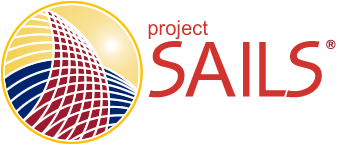Research and Assessments Using Project SAILS
Blomstrom, S. (2010). Identifying teaching effectiveness: Using student skill surveys, speech evaluations, and quiz scores to inform instruction. Communication and Theater Association of Minnesota Journal, 37(Summer), 116-132.
Cowan, S. A., Graham, R. Y., & Eva, N. (2016). How information literate are they? A SAILS study of (mostly) first-year students at the U of L. Retrieved from https://www.uleth.ca/dspace/handle/10133/4627
Creed-Dikeogu, G. (2016). Can smaller colleges use the AAC&U rubrics? Nebraska Library Association Conferences. Retrieved from http://digitalcommons.unl.edu/neblibconf/10
Detlor, B., Julien, H., Willson, R., Serenko, A., & Lavallee, M. (2011). Learning outcomes of information literacy instruction at business schools. Journal of the American Society for Information Science and Technology, 62(3), 572–585. https://doi.org/10.1002/asi.21474
Eva, N., & Graham, R. (2017). Sail away: Comparing the cohort test to the byot versions of Project SAILS in a Canadian context. Paper presented at the Librarians’ Information Literacy Annual Conference, Swansea, Wales.
Graham, R. Y., Eva, N., & Cowan, S. (2018). SAILS, take 2: An exploration of the “Build Your Own Test” standardized IL testing option for Canadian institutions. Communications in Information Literacy, 12(1), 19-35.
Hill, J.B., Macheak, C., & Siegel, J. (2013). Assessing undergraduate information literacy skills using Project SAILS. Codex: The Journal of the Louisiana Chapter of the ACRL, 2(3), 23-27.
Julien, H., Detlor, B., Serenko, A., Willson, R., & Lavallee, M. (2011). Preparing tomorrow’s decision makers: Learning environments and outcomes of information literacy instruction in business schools. Journal of Business & Finance Librarianship, 16(4), 348-367. doi:10.1080/08963568.2011.605669
Lewin, H. S., & Passonneau, S. M. (2012). An analysis of academic research libraries assessment data: A look at professional models and benchmarking data. Journal of Academic Librarianship, 38(2), 85-93.
Lym, B., Grossman, H., Yannotta, L., & Talih, M. (2010). Assessing the assessment: How institutions administrated, interpreted, and used SAILS. Reference Services Review, 38(1), 168-86. doi: 10.1108/00907321011020806
Martin, J. (2011). Investigation of factors affecting information literacy student learning outcomes fails to undercover significant findings. Evidence Based Library & Information Practice, 6(2), 59-60.
Naz, A., & Casto, M. (2013, October). Bring best of two worlds in a software engineering class, student outcomes of Accreditation Board of Engineering and Technology (ABET) and information literacy standards of Association of College & Research Libraries (ACRL). In Frontiers in Education Conference, 2013 IEEE (pp. 80-86).
Rumble, J., & Noe, N. (2009). Project SAILS: Launching information literacy assessment across university waters. Technical Services Quarterly, 26(4), 287-298. doi: 10.1080/07317130802678936
Seymour, C. (2007). Information technology assessment: A Foundation for school and academic library collaboration. Knowledge Quest, 35(5), 32-35.
Summey, T. P. & Kane, C. A. (2017). Going where they are: Intentionally embedding librarians in courses and measuring the impact on student learning. Journal of Library & Information Services in Distance Learning, 11(1–2), 158–174. doi.org/10.1080/1533290X.2016.1229429
Tong, M. & Moran, C. (2017). Are transfer students lagging behind in information literacy? Reference Services Review, 45(2). https://doi.org/10.1108/RSR-10-2016-0064
Wells, V. (2014). Report: SAILS Test Executive Summary 2014. University of the Pacific, 1–12. Retreived from http://scholarlycommons.pacific.edu/libraries-articles/44
Williams, P. (2015). Developing Student Competencies in Information Literacy Sessions Through Web-Based Instruction for Distance Learners. Fischler College of Education: Theses and Dissertations. Retrieved from http://nsuworks.nova.edu/fse_etd/93
Descriptions of Project SAILS
Blevens, C. L. (2012). Catching up with information literacy assessment. College & Research Libraries News, 73(4), 202-206.
Catalano, A. J. (2016). Streamlining LIS Research: A Compendium of Tried and True Tests, Measurements, and Other Instruments. Santa Barbara, CA: Libraries Unlimited. See pp. 15-16.
Mery, Y., Newby, J., & Peng, K. (2011). Assessing the reliability and validity of locally developed information literacy test items. Reference Services Review, 39(1), 98-122. doi:10.1108/00907321111108141
Publications by Members of the Project SAILS Team
Radcliff, Carolyn, Megan Oakleaf, and Michele Van Hoeck. “So What? The Results & Impact of a Decade of IMLS-Funded Information Literacy Assessments.” In Proceedings of the 2014 Library Assessment Conference: Building Effective, Sustainable, Practical Assessment. Washington, D.C.: Association of Research Libraries, 2015. Project SAILS portion only.
Salem, Joseph A. and Carolyn J. Radcliff. “Using the SAILS Test to Assess Information Literacy.” Building Effective, Sustainable, Practical Assessment: Proceedings of the Second Library Assessment Conference (Charlottesville: 2006), 131-137. Online Proceedings – go to page 131.
Blixrud, J. C. (2003). Project SAILS: Standardized assessment of information literacy skills. ARL: A Bimonthly Report on Research Library Issues & Actions, (230), 18-19.
O’Connor, Lisa G., Carolyn J. Radcliff, and Julie A. Gedeon. “Applying Systems Design and Item Response Theory to the Problem of Measuring Information Literacy Skills.” College and Research Libraries. 63, no. 6 (2002): 528-543.
O’Connor, Lisa G., Carolyn J. Radcliff, and Julie A. Gedeon. “Assessing Information Literacy Skills: Developing a Standardized Instrument for Institutional and Longitudinal Measurement.” In H. A. Thompson (Ed.), Crossing the Divide: Proceedings of the Tenth National Conference of the Association of College and Research Libraries (Chicago: 2001), 163-174. Online Proceedings
Presentations
March 25, 2017
2017 ACRL National Conference
Three librarians talked about their varied experiences in using the SAILS instrument, from pre- and post-testing in an IL course, to researching student success, to institutional assessment.
Cynthia Kane, Colleen Mullally, Carolyn Radcliff
May 28, 2014
6th International Conference on Qualitative and Quantitative Methods in Libraries
“Purposeful and Repeated Use of Standardized Assessment of Information Literacy: A Case Study at a U.S. Private Liberal-Arts University”
Carolyn Radcliff and Kevin Ross
April 25, 2014
2014 WASC Academic Resource Conference
“Standardized Assessment of Information Literacy Skills: What the SAILS Tests Reveal Over Time”
Carolyn Radcliff, Kevin Ross, Annie Knight
